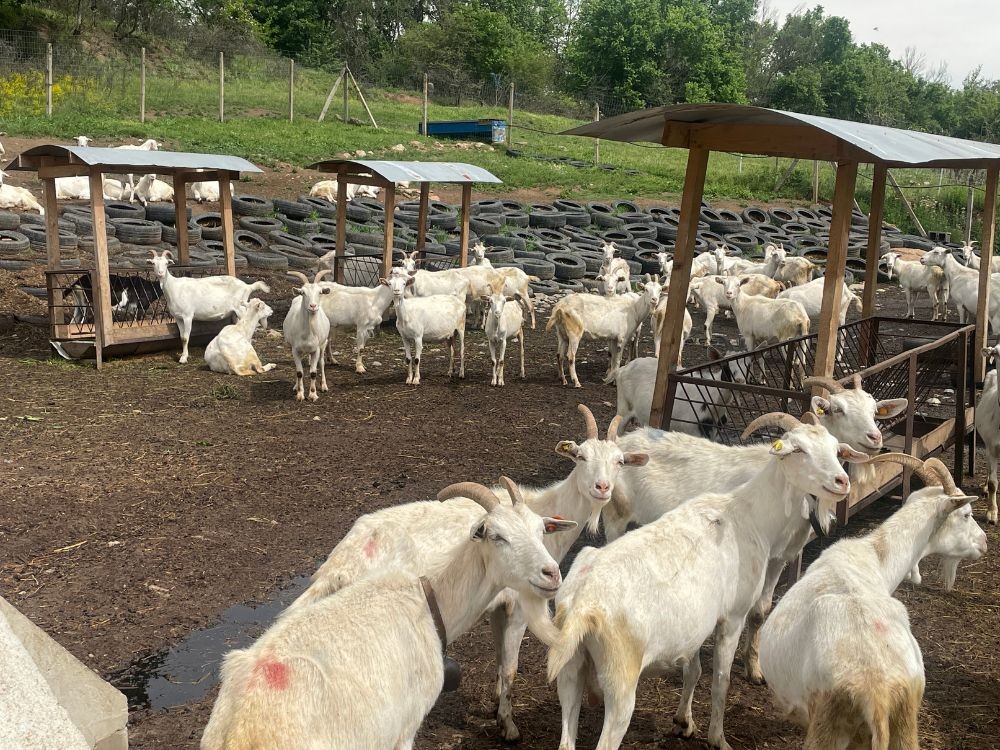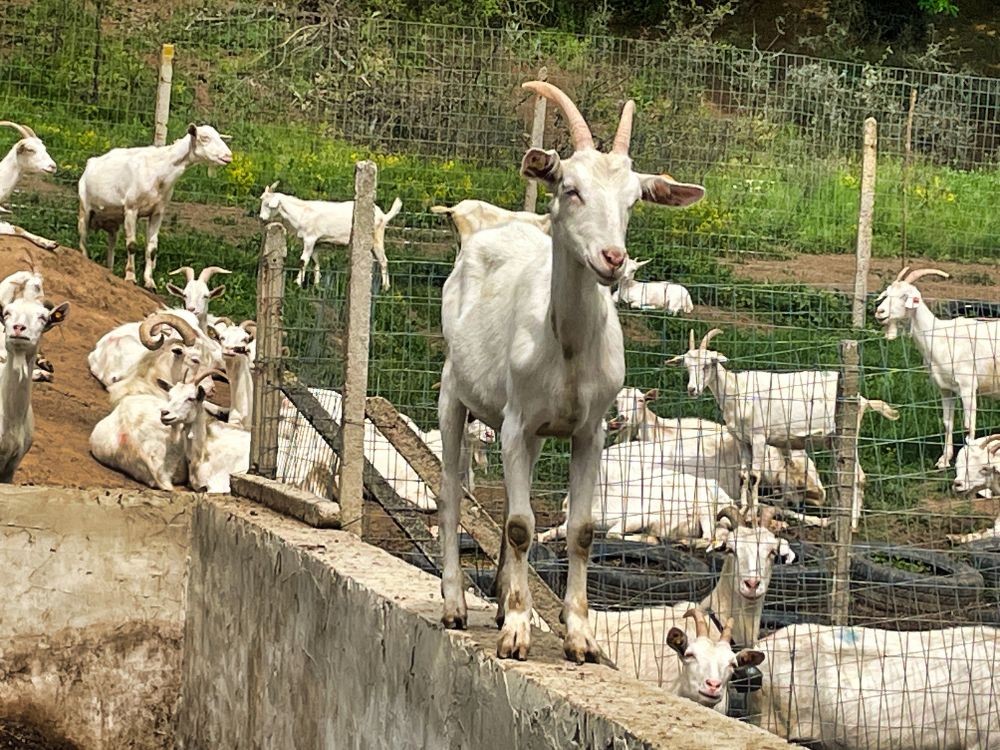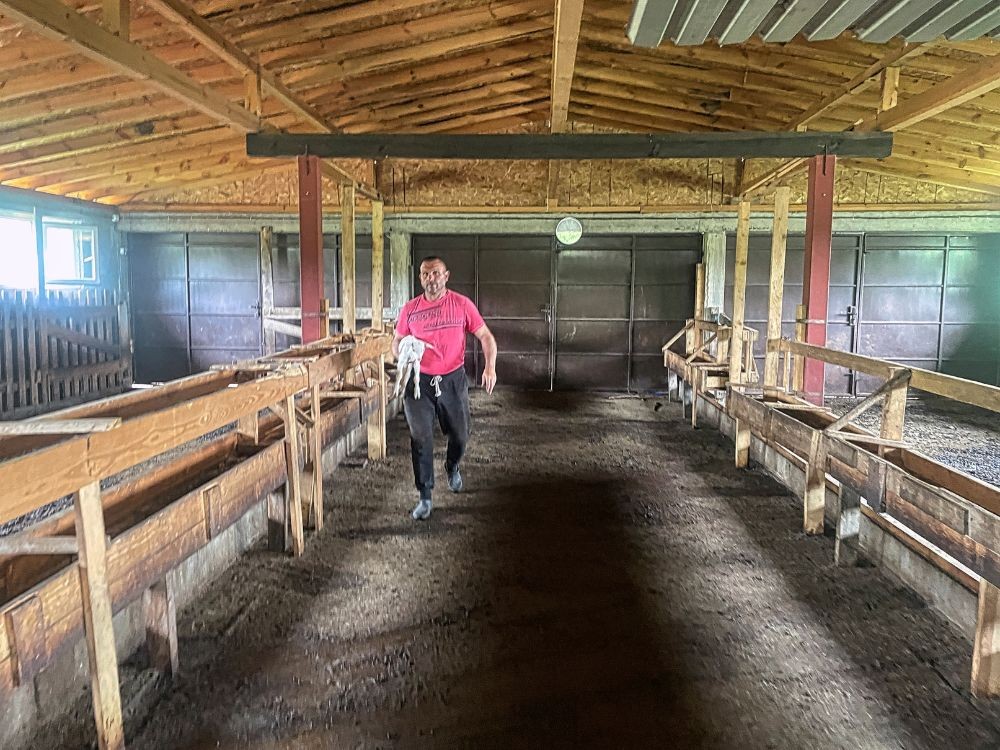According to official statistics, the number of goats in Bulgaria has dropped by almost 30% in the last decade, with some native breeds teetering on the brink of extinction. However, amid this decline, Dimitar Totev from the village of Turia in the Sub-Balkan region is breathing new life into his homeland by reviving the Bulgarian White Dairy Goat, a breed that was almost extinct.
"At first, I raised a common local breed. I chose goats for two reasons. Firstly, I know how to raise them. I spent quite a few years in Greece. While I was there, I worked for a man who owned 700 goats. And secondly, I just like the animals — they're easy to look after. All they need is kindness and good care, and in return they provide you with milk.
Now I keep Bulgarian White Dairy goats. We started with five goats from Ruse and gradually built up our herd. Within 10–12 years, all the goats had become white because we only kept those that carried the father's gene. This breed is typically Bulgarian – it was created here for our region.

The selection process requires years of patience. Today, Dimitar's farm produces up to 300 litres of milk per day during the peak season. However, his goats only produce milk for four months of the year. For the remaining eight months, they are either pregnant or their kids are suckling. “If we can't sell the kids for rearing, they continue to suckle and we don't get any milk,” Dimitar explains. But he adds that his main problem is bureaucracy.
“There are simply too many obstacles here, too many government agencies. If one gives you permission, two will deny it,’ says Dimitar. “We haven’t tried to create a final product yet because there are too many obstacles.” For example, if you want to sell cheese in a shop, you need documents for every step: labels, analyses, certificates... It becomes too expensive. In France, farmers display their products and sell them as artisanal goods. Here, that's impossible.'

In winter, Dimitar’s expenses for fodder and maintenance nearly eat up his profit. To feed his 120 goats, he has to prepare 2,000 bales of roughage. “Whatever is left after paying the electricity and water bills is for us,” says the farmer. He adds that, unlike large farms, which operate with state subsidies, small producers rely on local dairies that buy raw milk at very low prices. Furthermore, it is almost impossible for small producers to reach retail chains — the contracts are tough, and the state constantly imposes administrative obstacles, Dimitar claims.
Otherwise, setting up a dairy would seem like a logical solution. But the reality is different. A colleague of his in the Turia area invested 120,000 leva (around 60,000 euros), raising money through loans and friends, only to find in the end that there was no one to employ — there’s a shortage of technologists and farm hands. So what happens when you finally begin producing the finished product?

'Then comes the hard part. It's difficult to sell your produce at farmers' markets alone, and you still have to meet certain requirements. You can't get into a shop because your quantities are too small. You can't produce a tonne of cheese and expect to supply a chain store - they sell a hundred kilos a day and you only have enough cheese for ten days."
The Bulgarian White Dairy Goat is no longer an endangered breed today, but the struggle for survival of those who keep it continues, especially since European subsidies for traditional farmers have been discontinued as this breed is now considered restored. Although there are programmes for rare breeds, the strict requirements and limited availability make accessing them almost impossible for farmers like Dimitar.

"This isn't business — it's an ordeal! We got ourselves into this mess, and we're not giving up because we've always hoped that better times would come. If the state wants to help, it should just stop getting in our way. It should also stop subsidising 'their people' and allow the market to do its job. Customers will come looking for you if you're a good producer," Dimitar Totev told Radio Bulgaria.
Twelve beautiful young minds of Bulgaria were honoured by President Rumen Radev at a special ceremony, in which the annual John Atanasoff Awards were presented. The event took place two days after the birthday of the prominent..
Bulgaria's State Automobile Inspectorate (DAI) is the official body that deals with the control of heavy-duty traffic on the territory of the country, as part of the Executive Agency "Automobile Administration" (IAAA). Its work became the subject of..
With a concert by the Slavey Quartet created by folk singer Nadka Karadzhova and a conversation about the problems of our compatriots in the Western Outlands, the Cultural and Information Center of the Bulgarian Minority in..
October 17, 2025 will go down in history as the date on which the Minister of Culture of Hungary presented the document with which the..
The center of Bulgaria's town of Asenovgrad is today turning into a colorful scene of flavors, aromas and traditions, in which the spirit of the Red Wall..
Veliko Tarnovo is hosting the Urban Wine Fest, organised by the Bulgarian Association of Wine Professionals. "October is the month of Bulgarian wine and..

+359 2 9336 661
